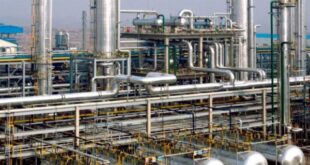 With an ambitious plan to double the volume of liquefied natural gas (LNG) imports this year, the government has planned to ink multibillion-dollar state-to-state gas supply contracts with big African producers – Nigeria and Algeria.
With an ambitious plan to double the volume of liquefied natural gas (LNG) imports this year, the government has planned to ink multibillion-dollar state-to-state gas supply contracts with big African producers – Nigeria and Algeria.
Pakistan is currently importing 4.5 million tons of LNG per annum and the volume will shoot up to nine (9) million tons before the end of this year. Projections show that Pakistan will annually need twenty (20) million tons of LNG within three (3) years and thirty (30) million tons in five years.
According to sources, a draft agreement will be presented in the cabinet for ratification before clinching deals with Nigeria and Algeria for LNG imports. This will be followed by the inking of commercial contracts for implementation of the proposed plan.
Although Nigeria LNG’s production dropped 1.8 million tons in 2016, the company still kept its position as one of the top five LNG exporters in the world.

According to the International Gas Union’s World LNG 2017 report, Nigeria was one of the top five LNG exporters by share between 2015 and 2016. The order of top five exporters by share is Qatar, Australia, Malaysia, Nigeria and Indonesia.
Algeria’s gas output in 2016 stood at 132.2 billion cubic metres (bcm), up from 128.3 bcm in 2015. Algeria, which is competing with LNG production by the US and others, is ramping up output in an attempt to defend its market share in Europe.
Japan annually imports 80 million tons of LNG whereas India buys 15 million tons because of the commodity’s lower price and efficiency compared to other fuels.
Around eight months ago, Pakistan signed a 15-year agreement with Qatar for annual imports of 3.75 million tons to meet its growing energy needs as existing natural gas reserves of Pakistan appeared insufficient to bridge the widening demand-supply gap.
The import of LNG has given a new lease of life to some industrial sectors, compressed natural gas (CNG) filling stations, fertiliser plants and power producers, which were earlier sitting idle or limping along in the absence of gas supplies.
Again, officials said Pakistan had two options for gas imports – either through LNG supplies or pipeline projects. LNG imports have proved to be a game changer as increased energy inflows have contributed to the growth of national economy, which had weakened due to power and gas shortages. The gap between supply and demand of gas has swelled to 4 billion cubic feet per day (bcfd) with demand rising to 8 bcfd and supply remaining restricted to 4 bcfd. Needless to say, consumption of the country rises rapidly in winter.
LNG is being provided to consumers at a price lower than liquefied petroleum gas (LPG) rates. LNG costs consumers Rs850 per million British thermal units (mmbtu) compared to LPG’s price at around Rs2,000 per mmbtu.
Locally produced natural gas, however, is priced up to Rs700 per unit.
At present, 600 mmcfd of LNG is being imported. With its help, all gas-based power generation plants are now fully functional, over 1,200 CNG stations have restarted operations, industrial and fertiliser plants are receiving uninterrupted supplies.
 MMS PLUS NG – Maritime, Aviation, Business, Oil and Gas News Online Newspaper with coverage in Maritime, Oil and Gas, Aviation, Power and Energy as well as Financial News
MMS PLUS NG – Maritime, Aviation, Business, Oil and Gas News Online Newspaper with coverage in Maritime, Oil and Gas, Aviation, Power and Energy as well as Financial News









